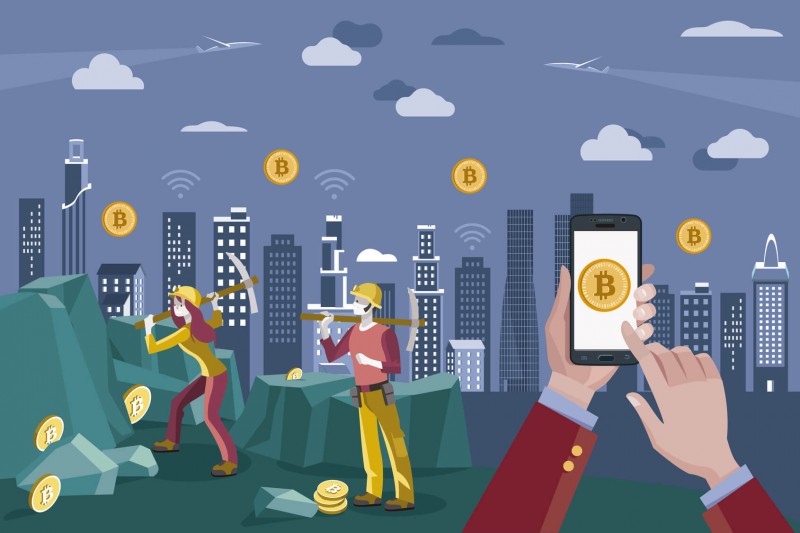
In recent years, blockchain technology has emerged as one of the most revolutionary and transformative innovations across various industries. Initially developed as the underlying technology for cryptocurrencies like Bitcoin, blockchain has evolved into a versatile solution with applications extending far beyond the financial sector. This article aims to provide a comprehensive overview of blockchain technology, its workings, and its diverse applications in today's world.
Understanding Blockchain Technology
What is Blockchain?
At its core, a blockchain is a decentralized and immutable digital ledger that records transactions across multiple computers in a secure and transparent manner. Unlike traditional centralized systems, blockchain operates on a distributed network of nodes, where each node holds a copy of the entire ledger. Transactions are grouped into blocks and added to the chain in a chronological order, creating a permanent and tamper-resistant record.
How Does Blockchain Work?
Blockchain's security and trustworthiness are achieved through advanced cryptographic techniques. Each block contains a unique cryptographic hash of the previous block, linking them together and forming a chain. Any attempt to alter data in a block would require changing all subsequent blocks, making the manipulation practically infeasible due to the consensus mechanism employed by the network.
Features of Blockchain
Blockchain technology offers several essential features that contribute to its widespread adoption:
Applications of Blockchain Technology
Cryptocurrencies and Digital Assets
The most famous application of blockchain is cryptocurrencies, allowing secure peer-to-peer transactions without the need for financial intermediaries. Bitcoin, the first cryptocurrency, has paved the way for thousands of other digital assets that offer various functionalities and use cases.
Supply Chain Management
Blockchain technology enhances supply chain efficiency by providing end-to-end traceability of goods. Each step of the supply chain is recorded on the blockchain, ensuring transparency and combating counterfeit products.
Healthcare and Medical Records
By using blockchain for medical records, patient data can be securely stored, accessed, and shared among healthcare providers, enhancing accuracy and privacy.
Voting Systems and Elections
Blockchain-based voting systems can eliminate electoral fraud and enhance voter participation by providing a transparent and tamper-resistant platform for elections.
Intellectual Property and Copyrights
Blockchain enables artists and creators to protect their intellectual property rights by timestamping their work and establishing ownership.
Decentralized Finance (DeFi)
DeFi leverages blockchain to provide financial services without traditional intermediaries, offering opportunities for lending, borrowing, and yield farming.
Identity Management
Blockchain-based identity solutions provide individuals with control over their personal data, preventing identity theft and enhancing privacy.
Real Estate and Property Transactions
Blockchain simplifies property transactions by reducing paperwork and ensuring secure and transparent transfers of ownership.
Notarization and Legal Contracts
Blockchain's immutability and transparency make it ideal for notarizing documents and creating legally binding smart contracts.
Internet of Things (IoT)
Blockchain enhances IoT security by creating a decentralized network of connected devices, reducing vulnerabilities and enabling automated microtransactions.
Advantages and Challenges of Blockchain
Advantages
Challenges
Future Potential of Blockchain Technology
The future potential of blockchain technology is immense, with ongoing research and development unlocking new use cases and innovations. As scalability and energy efficiency improve, blockchain will likely become more mainstream across various sectors, transforming industries and reshaping the way we interact with data and conduct transactions.
Blockchain technology has emerged as a game-changer, disrupting traditional industries and empowering individuals and businesses with unprecedented possibilities. Its decentralized, secure, and transparent nature has given rise to diverse applications, from cryptocurrencies to supply chain management and beyond. As the technology continues to evolve, embracing blockchain's potential can pave the way for a more efficient, trustworthy, and interconnected world.
Brands like Pacsun to join F1 as a Partner in the Dominant Race
Sergio Perez to be on Podium as Max Dominates his F1 Career for the Year
Threads App Introduces New Messaging Feature, Sparking Interest Among Users